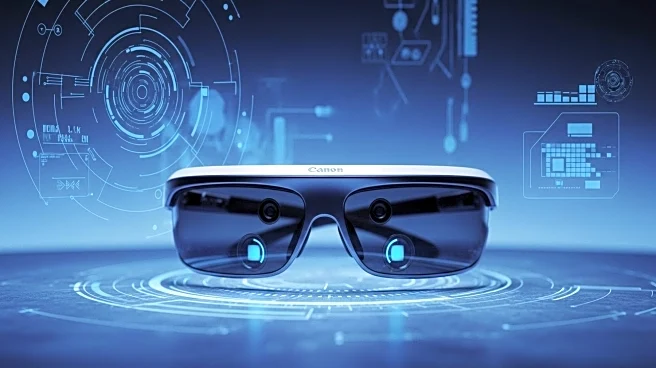What is the story about?
What's Happening?
Meta and Amazon are making significant strides in the development of augmented reality (AR) glasses, which are expected to reshape consumer technology by 2025. Meta has unveiled display-capable Ray-Ban and Oakley glasses, marking a transition from prototypes to consumer-ready products. These glasses incorporate on-device AI for contextual alerts and object recognition, enhancing user experiences with real-time information. Meanwhile, Amazon is reportedly working on its own AR glasses, codenamed 'Jayhawk,' which could introduce a new competitor in the AR market. These developments are part of a broader trend, with IDC forecasting a 39.2% growth in AR/VR headset shipments in 2025, indicating a rapid adoption of AR technology.
Why It's Important?
The advancements in AR technology by Meta and Amazon are poised to significantly impact the consumer electronics market. As AR glasses become more accessible, they could transform how users interact with digital content, offering hands-free experiences and potentially altering shopping behaviors. The integration of AI and biometric sensors in these devices raises privacy concerns, which may lead to increased regulatory scrutiny. The competition between major tech companies like Meta and Amazon could drive innovation and lower prices, making AR technology more mainstream. This shift could benefit app developers and tech companies, while consumers may face new privacy trade-offs.
What's Next?
As Meta and Amazon continue to develop their AR glasses, consumers can expect faster product cycles and more affordable options. The upcoming launch dates and preorder rollouts suggest that these products will soon be available to the public, potentially leading to widespread adoption. The focus on app ecosystems and developer tools will be crucial in determining which platform offers the most compelling AR experiences. Regulatory bodies may also begin to address privacy concerns associated with biometric sensors, influencing future product designs and consumer trust.
Beyond the Headlines
The introduction of AR glasses with biometric sensors could lead to new applications in health monitoring, turning these devices into personal health data hubs. This development may prompt ethical and legal discussions about data privacy and the extent to which personal health information can be collected and used. Additionally, the shift towards AR technology could influence cultural norms around technology use, as consumers adapt to new ways of interacting with digital content.














